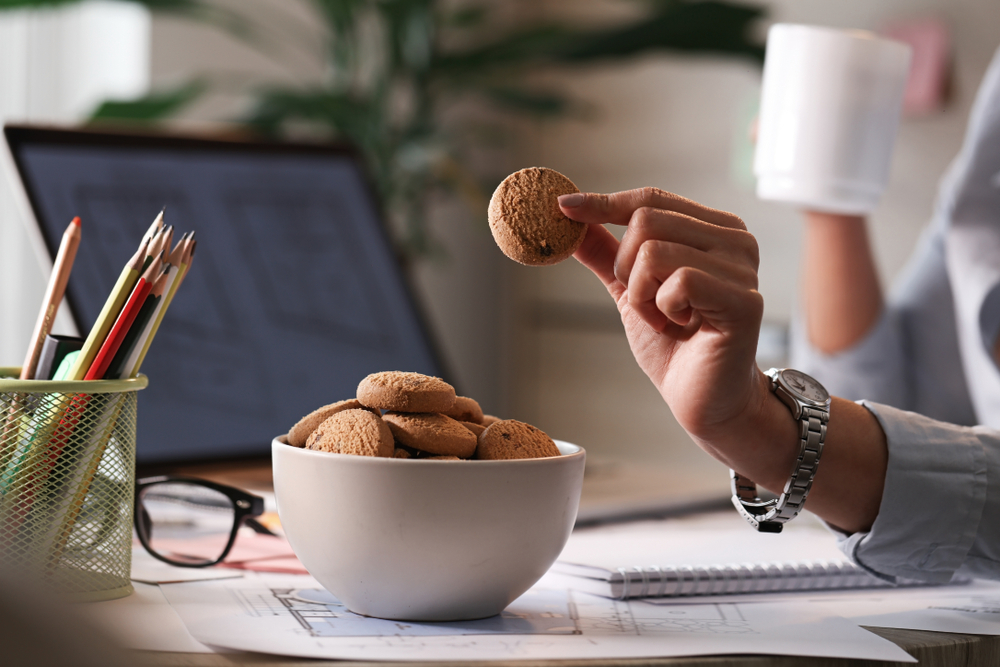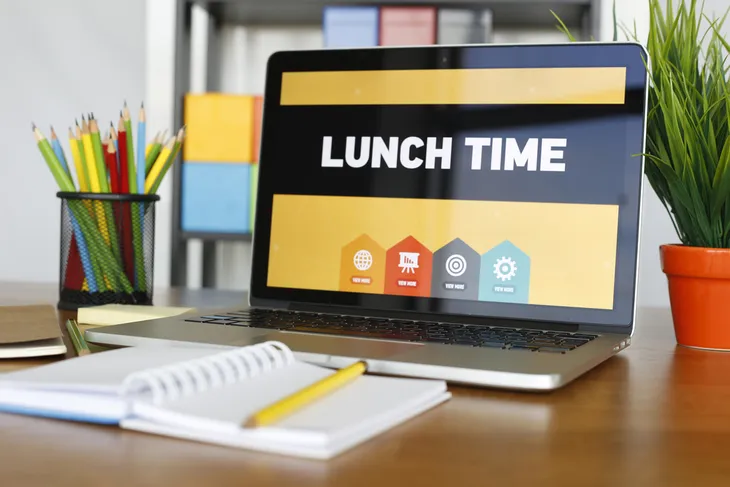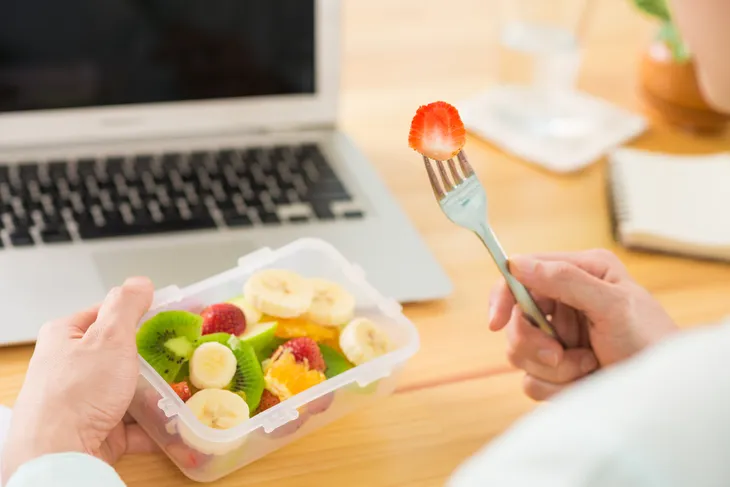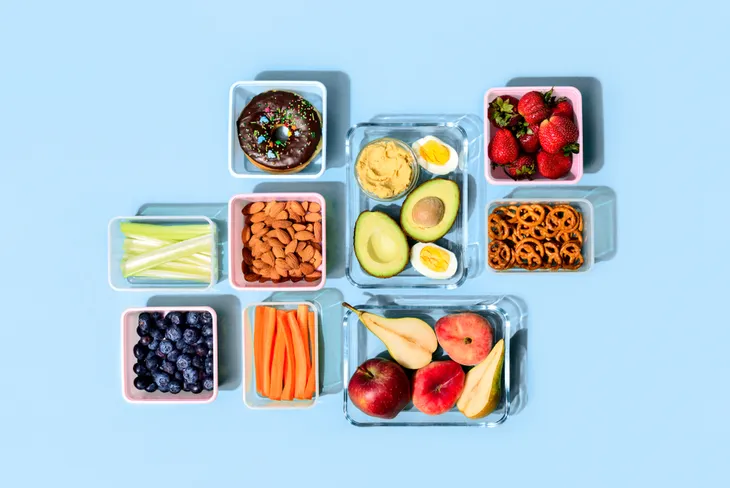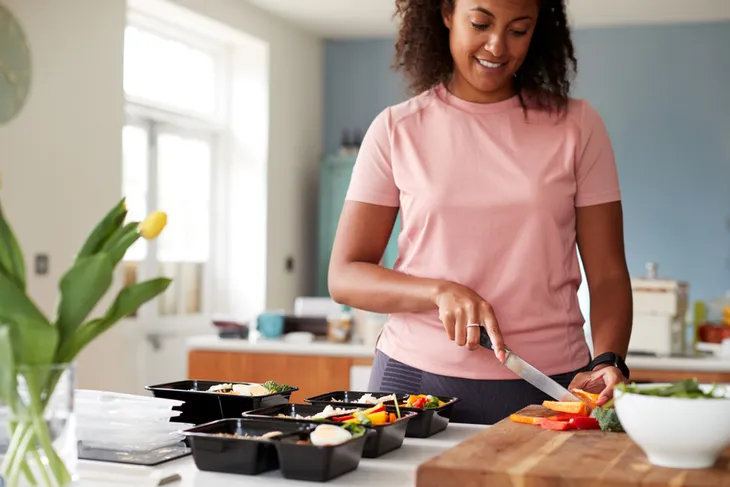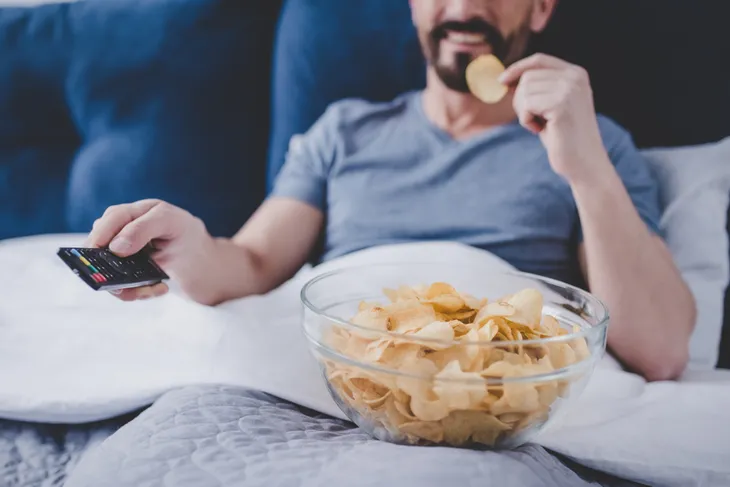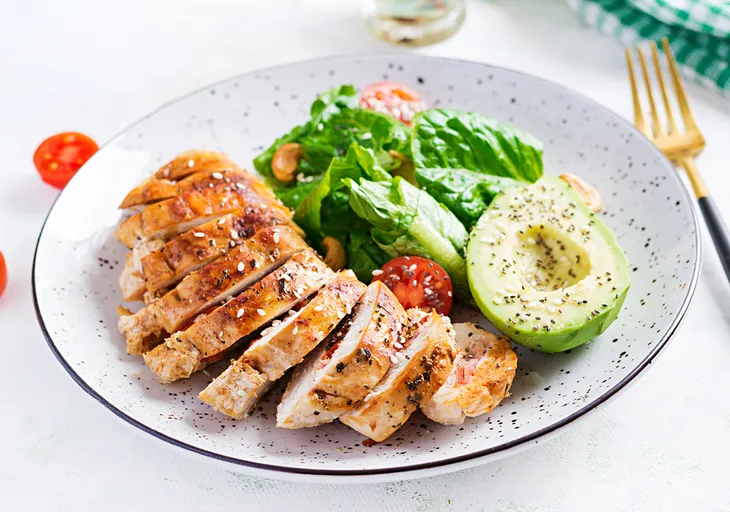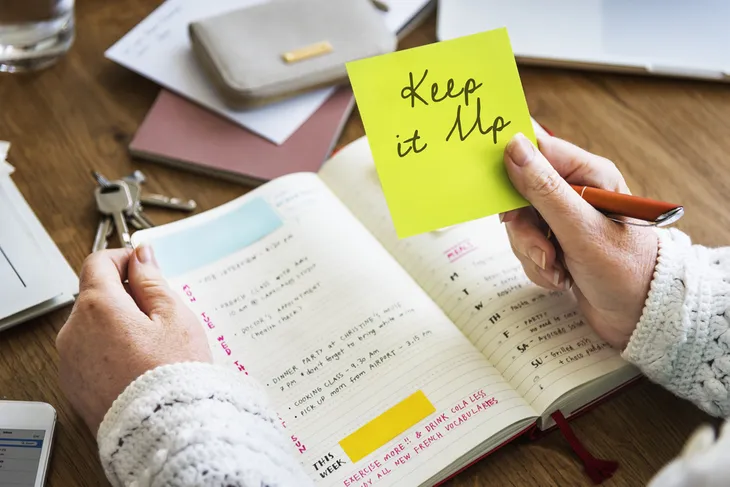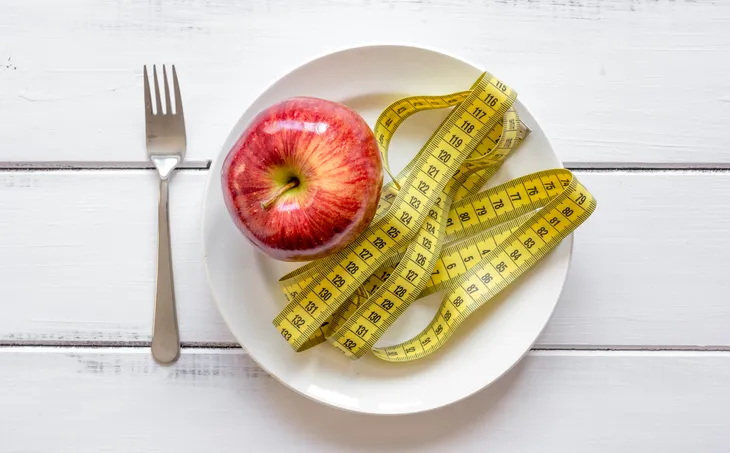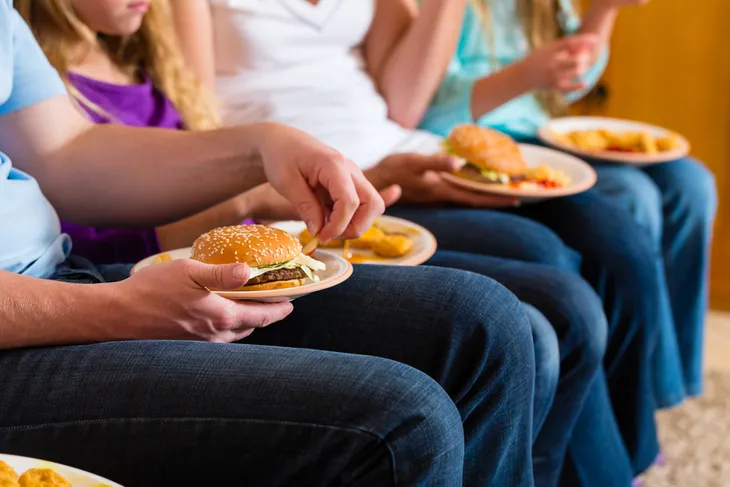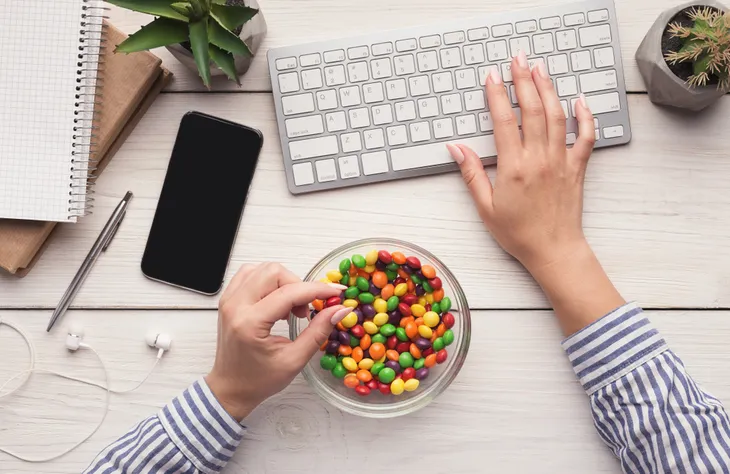No doubt, working from home requires a great deal of self control. This goes for both productivity and more health-related things like eating and snacking. Since we’re in the comfort of our own home without any of our co-workers around, we may be more tempted to snack while we work. Snacking isn’t bad per se, it depends on what the snack is. More often than not, these snacks are just made up of empty calories.
Is there a way to prevent overeating while working from home? Relying on willpower alone is a surefire recipe for failure — and crushed self-esteem. Instead, identify the triggers that prompt you to snack when you don’t feel hungry and treat yourself with loving-kindness as you reform your snacking habits.
Schedule Mealtimes
One of the biggest difficulties about working from home is that people often forget to take a break from their work because they can’t easily separate their home life from their work life. It’s important to schedule breaks throughout the day, including mealtimes. To help avoid snacking and focus more on eating well-rounded meals, schedule in a lunch time break. This includes time to prepare and enjoy the meal.
Instead of eating on the go, take the time to sit down and enjoy the meal. When you slow down and eat mindfully, you turn into your body’s innate hunger and satiety signals. You also give yourself time to ask yourself questions, such as “Am I hungry right now?” You’ll take more satisfaction in the meals that you do consume, and you’ll enjoy more time with your spouse and kids.
Designate “No Snack” Areas
People who work from home tend to find it hard to separate their work space from their living space, especially if they don’t have an office. This means you’re probably eating where you work. To shed some light on how often this happens, over the next few days, write down not what you eat but where you consume it. While we might think we’re saving time by doing so, we’re also establishing a psychological association between sitting at our workstation and snacking.
Once you identify the areas where you tend to graze, mark them off-limits from snacking. At first, you might feel a bit lost and often find yourself grabbing for something out of habit, but by taking away the convenience of having food right by your side and having to walk to the kitchen to get it, you’ll be less likely to eat as much.
Buy Smaller Sizes
What happens when concerns about food waste collide with family-sized portions? You polish off the rest of open containers before they can go stale. The problem with this practice is that you often don’t feel hungry for the calories you consume.
You perform mental gymnastics to justify your overeating by saying, “there are starving people in this world.” Yes, sadly, these folks do exist, but polishing off that box of Cocoa Bears won’t feed them any.
When you go to the market, opt for smaller sizes of your favorite treats. You can also try buying snacks that typically come in smaller sizes. For example, try having one frozen banana or a single-sized yogurt parfait for dessert instead of heaping several scoops of banana crumble ice cream into a bowl. That way, you don’t feel deprived, but you do limit your consumption to a reasonable portion.
Use Measured Containers
You may balk at the idea of using a food scale, and if your overeating stems from deprivation, counting every calorie can backfire. However, you can invest in a set of measured portion containers that keep your snacks to a reasonable size. The trick is only to allow yourself one serving — refilling a tiny bowl a dozen times won’t reduce your consumption much.
Turn Off the Computer and TV
Remember the last time you saw a movie? Before you reached the second hour, you were halfway through that jumbo portion of popcorn. When you are distracted, you tend to eat more than you would if you paid attention to your body’s cues. Make the family dinner table a device-free zone — including turning off the television. If you must have background noise, dock your iPhone and put on some relaxing tunes.
Keep Hydrated
Dehydration can sneak up on you, even more so for those who live in an arid climate or during those warm summer months. Hydration is not only important for overall health, it can help battle those urges to snack. Oftentimes we mistake hunger for thirst. Staying well hydrated can help deter any unnecessary snacking.
Unfortunately, drinking more coffee won’t cut it. While science has debunked the myth that caffeine dehydrates you, too much can give you headaches and jitters. If you find it hard to drink water, try jazzing it up by adding fresh fruit.
Focus on Your Nutritional Needs
If you become obsessed with counting every calorie, you will drive yourself crazy and end up feeling deprived. Instead, focus on meeting, but not exceeding, your body’s innate requirements. Nearly 10-percent of Americans have a nutritional deficiency, and these can spur cravings that drive overeating. They can also make you feel miserable.
You don’t have to do complicated math with food labels to meet your needs. A wise rule to follow is to fill half of your plate with fruits and vegetables at every meal. Devote one-quarter to whole grains like quinoa, and the remainder to protein and healthy fats. This system works for vegetarian and vegan diets, too.
Post Encouraging Notes
Some popular diet plans advise posting sticky notes on your cupboard and fridge to remind you not to overindulge. However, what you write matters as much as the medium itself. Messages like, “nothing tastes as good as thin feels,” makes your brain rebel, “Yeah, right! Show me the cheesecake.”
Instead, if you choose the notes-to-self route, treat yourself the way you would your best friends. Posting things like “You’re making incredible progress” gently remind you not to fall off track by indulging that ice cream craving.
Reward Your Efforts
Yes, getting healthier by stopping mindless snacking on junk food should serve as a reward in itself. Unfortunately, the human psyche doesn’t work that way. Building a skyscraper entails considerable creativity and engineering skill, but few workers would show up to erect the beams without a financial incentive.
Plan small treats for everyday triumphs. If you say you can’t be rewarded until you lose 20 pounds, you might get discouraged before reaching your goal. Relax in a bubble bath after a day of clean eating. Buy yourself a small gift, like a new pair of running socks, when you make it a week without polishing off a family-sized bag of corn chips.
Why Do People Overeat?
The complicated relationship between food and human beings would put most reality-show drama to shame. The biological function seems simple enough — you eat when you get hungry and stop when you feel full. In reality, multiple factors can cause you to overeat, many of which you can control.
Extreme Dieting
If you want to shed pounds quickly, you may think an extreme diet represents the path of least resistance. However, you may sabotage your efforts by going to extremes. Psychologically, your mind rebels against arbitrary restrictions like, “Thou shalt not eat carbs.” It’s one reason why recovering addicts focus on one day at a time.
Living in a world devoid of sweet treats is enough to depress anybody. Instead, think about making healthier choices one meal at a time. Physically, your body interprets severe caloric restriction as a famine situation, and it produces hormones to drive you to consume more. These urges can prove as challenging to ignore as it is to keep from licking chapped lips.
Genes
Researchers have found multiple genes that influence eating behavior. However, these alone don’t spur you to binge. Your environment plays a role — if you grew up in a family where overflowing plates were the norm, you tend to embrace heftier portion sizes. Likewise, traumatic life events can trigger an urge to overeat that can start as a temporary relief and evolve into an ingrained habit.
Stress
When you experience chronic stress, your body keeps cortisol production high. In short bursts, this hormone decreases your appetite as it prepares your body for fight-or-flight. However, over the long term, your body interprets the elevated levels as a prolonged attack. You will feel compelled to eat more to ready yourself for the next onslaught.
Boredom
On the other hand, if you find yourself listless without the banter of your colleagues to entertain you in your home office, you might snack to ease boredom. The feeling can also occur when you work too long without stopping, a habit that often develops when your commute only lasts a few seconds. Schedule breaks throughout your day and use them to walk somewhere other than the kitchen — like around the block.
Thirst
People tend to drink with a meal, which can muddy the waters between thirst and hunger. You might think you feel famished while, in reality, you are merely thirsty. To break this cycle, keep yourself well-hydrated and learn to pay attention to the way hunger expresses itself differently.
Compulsions
Some researchers believe that chronic overeating represents a form of obsessive-compulsive disorder (OCD). Fully 64-percent of individuals with eating disorders also have anxiety, and 41-percent have OCD specifically. Both diseases share the trait of dysfunctional thought patterns affecting behavior in a way that makes patients feel ashamed. If you fear that an underlying psychological issue spurs your need to snack, reach out to a therapist for help.
Finding Help for Out-of-Control Eating
If your eating habits continue to spiral out of control, you might need professional assistance. There is no shame in asking for help. Staying quiet only leads to suffering in silence, not meaningful steps toward recovery.
Therapy: If you have coverage, talk to your insurer about finding a reputable therapist in your network. Sometimes, you may need to take a trip to your primary care physician for a referral.
Overeaters Anonymous: This support group is a free resource for everyone, not only those who lack the means. You can find strength in numbers and camaraderie. Plus, it has online meetings, which means you don’t need to leave the comfort of your couch to attend.
It’s understandable to cave in to the urge to snack mindlessly when you telecommute. However, by identifying your triggers, implementing eating strategies and enlisting help, you can get your habits back on track.
